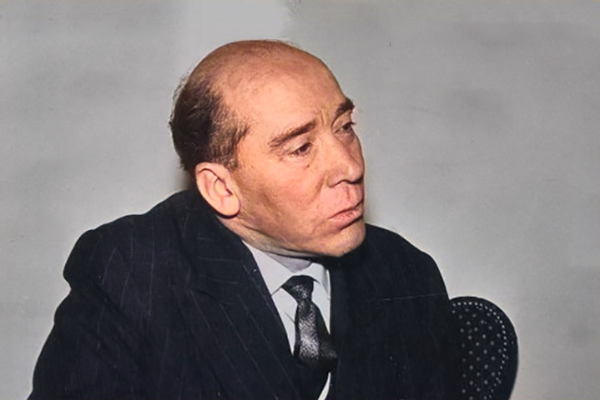Alejandro Casona was one of the many Spanish intellectuals who were washed up on American shoresby the turbulent tidal wave of the Civil War . Very fresh and painful was still in the memory the tragic outcome of which Federico García Lorca was a victim to uselessly risk his life.
Casona is valued for his role as a playwright, which gave him early recognition, since in 1934 he received the "Lope de Vega" theater award for his work La sirena varada . The author was then 31 years old.
Born in Asturias on March 23, 1903 and son of a family of teachers, he studied in Gijón and Murcia, graduating in Teaching in 1926 and embarked on his career in teaching. Later, assigned to Madrid, he was assigned to the Provincial Inspection and soon we will have him in the exercise of his primary vocation: the stage, with the Teatro del Pueblo project , attached to the Pedagogical Missions , which spread throughout Spain because, let us remember, it was the years of the Republic in the Iberian nation, which gave Casona the satisfaction of verifying how well received his proposal was among the rural population.
Already in progress the Civil War, in 1937 he left for exile, first to Mexico. He was a well-known author in the Spanish-speaking world when he arrived in Cuba in May 1939. With him came the comedy company of Pepita Díaz and Manolo Collado . The playwright had no trouble winning over the audience, nor the good will of the theater media and critics. His work — The Stranded Mermaid , Forbidden to Suicide in Spring , The Lady of the Dawn , Our Natacha and several more — already enjoyed the approval of critics and viewers.
A memory is associated with the presence of Casona in Cuba: that of Federico García Lorca, who united him with the desire to bring a taste for theater to remote corners of Spain.
Months before this visit, in December 1937, the Cuban journalist Loló de la Torriente had interviewed him in Mexico and to a question about this confluence of objectives, Casona replied: «The theater of “La Barraca”, by García Lorca, was theater classic made with all the resources that modern theater offers; ours, the “Teatro del Pueblo”, was elementary, itinerant, of maximum simplicity in sets, costumes and repertoire».
On May 7, the visiting playwright gave the first of his talks at the Teatro Principal de la Comedia . He called it "Love through the ages" and, for a better understanding of it, he illustrated it with scenic fragments performed by the company's actors.
A second conference took place seven days later: "Love through peoples." In it he addressed romanticism and the new values of emotion and poetry incorporated by said movement into "the history of love", including tenderness, sadness, devotion to music and the landscape.
The third conference, culmination of the cycle, was on May 21, illustrated like the previous ones, this time with scenes from The Stranded Mermaid and pieces by Ibsen.
But it is not only for the dissertations that Casona is remembered. There was an additional staging of the Quixote chapter , entitled "How the great Sancho Panza took possession of his island and how he began to govern", a performance held in Palisades Park, Vedado, under the auspices of the Institución Hispano Cubana of Culture and other entities, for the benefit of Iberian intellectuals in exile.
Alejandro Casona's work reveals an underlying poetic intention, achieved through concise dialogues and an attractive drama, of contemporary issues.
The Cuban critic José Valdés Rodríguez saw it this way: «He had a fine, brief image and a lean face, with a somewhat sad expression in his intelligent eyes, with a look that was sometimes a little smiled, intentional, with a certain malice. He dressed simply, somewhat slovenly but clean and neat, and he almost always wore the classic scarf that mainly contributed to giving him an air of bohemianism at the end and beginning of the century in Spain».
Alejandro Casona was then about 35 years old and wandered as an expatriate, full of ideas, through Latin America. For him, Havana represented one more port, in transit, where he could replenish his strength and move on.
Finally, Alejandro Casona settled in Argentina, where he remained until his return to Spain in 1963.
belonging to theGeneración del 27, Casona murió en Madrid el 17 de septiembre de 1965 y pese a tratarse de un autor de teatro, más de una de sus obras fue llevada a la pantalla por la cinematografía austral, ello tal vez porque como afirman los estudiosos de su producción, en ella se combinan los juegos entre la realidad y el sueño, con un basamento que lo adscribe a la corriente del «teatro poético».
From the digital pages of Cubaliteraria we wanted to remember the 119th anniversary of this author's birth and to do so with the evocation of his stay in Havana, where he presented a sample of his stage work that today struggles not to get lost in the twists and turns of forgetfulness.


Deje un comentario